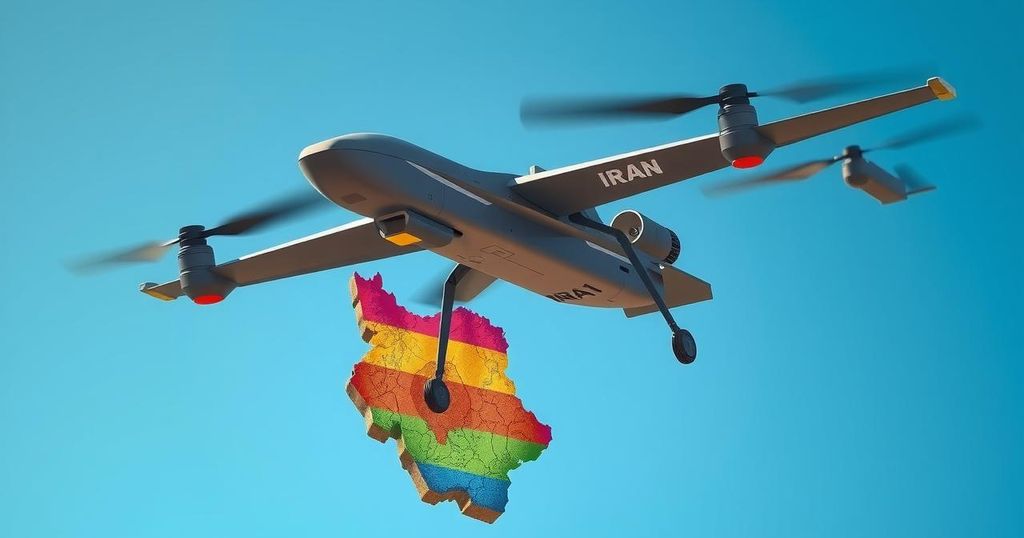Implications of Russia’s Drone Warfare on Middle Eastern Conflicts
This article analyzes Russia’s growing drone capabilities in Ukraine, particularly during the recent conflict in Kursk. It outlines how the use of drones has shifted military dynamics and influences Iran’s proxies against Israel. The effectiveness of Russian drone tactics, characterized by swarming and logistical control, has significant implications for warfare in other regions.
In the conflict between Russia and Ukraine, recent developments highlight the escalating importance of drone warfare. According to a recent BBC article, Russia’s ability to dominate drone usage has contributed significantly to its military success, particularly illustrated by the Ukrainian withdrawal from the Kursk area. After holding this territory since August 2024, Ukraine’s retreat underscores the effective strategies employed by Russian forces, especially their utilization of drones.
The BBC piece points to Russia’s ongoing adaptation in drone tactics since the onset of the war. Initially, they acquired Iranian-made Shahed kamikaze drones in 2022, which, while initially not pivotal, have since influenced Iranian-aligned groups to leverage similar tactics against Israel following the Hamas attack on October 7. This suggests that developments in the Russian-Ukrainian conflict could have broader implications in Middle Eastern hostilities.
An analysis of the situation reveals that traditional military tactics were pivotal. The report states that Ukraine deployed around 12,000 of its best-trained soldiers, while Russia mobilized tens of thousands to encircle and push back Ukrainian forces. The reliance of Ukraine on a singular supply route resembles historical retreats, exemplified by the Iraqi army’s flight from Kuwait, leaving behind valuable resources.
As the report discusses, Russian drone units played a crucial role, especially utilizing kamikaze and first-person view (FPV) drones to control logistics routes effectively. Ukrainian soldiers noted a stark shift in aerial dominance: “We lost the advantage in drones” stated one soldier, emphasizing the severe challenge posed by Russian air strikes and drone monitoring.
Key to Russia’s victory in this drone conflict is the employment of drone swarms, which effectively target multiple threats simultaneously. This tactic is reminiscent of successful strategies utilized by Azerbaijan against Armenian forces in recent years. Soldiers recounted the relentless nature of these drone attacks, stating, “Drones around the clock. In one minute, you can see two to three drones. That’s a lot.”
The employment of fiber-optic communications for drone operation enhances their resilience against electronic jamming, making it a strategic advantage in modern warfare. The increasing reliance on drones signals a pivotal shift in military engagements, echoing the historical evolution of tanks and aircraft.
The lessons learned from the Kursk battle are vital for other nations, including Israel, as they develop countermeasures for evolving drone warfare. The usage of drones by Hamas to target Israel underscores that what occurs within Ukraine could inform tactics utilized in the broader Middle East, with both Russia and Iran closely observing these developments.
In conclusion, the recent analysis of the drone warfare dynamics between Russia and Ukraine illustrates significant implications for military strategies in other regions. The utilization of drone swarms and effective logistic control by Russia not only redefines tactics in Ukraine but also serves as a potential blueprint for Iranian proxies operating against Israel. Understanding these developments is essential for militaries to remain competitive and adaptive in contemporary warfare contexts.
Original Source: www.jpost.com




Post Comment